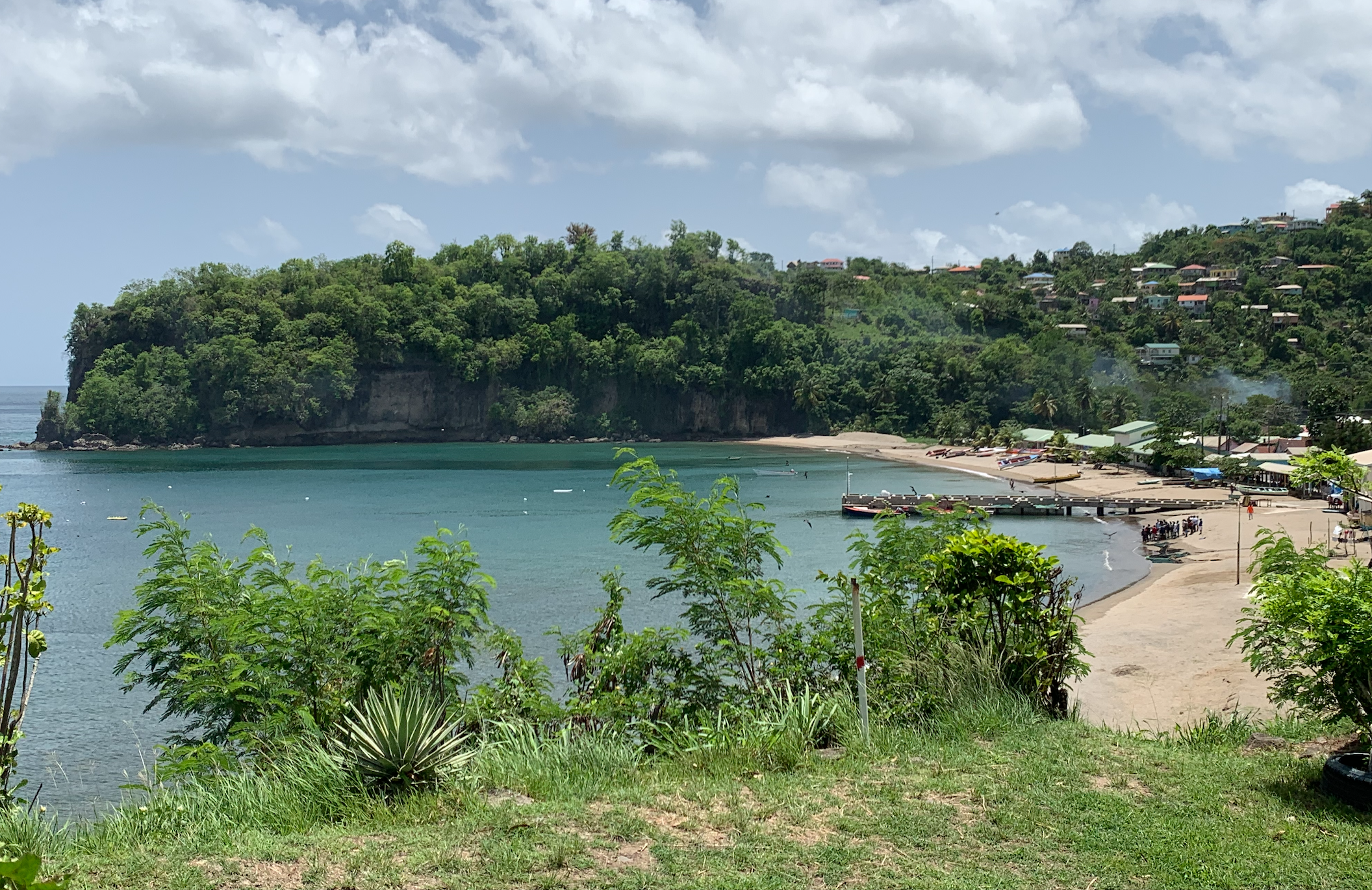

By almost any economic benchmark—GDP, employment, foreign exchange, foreign direct investment, trade and services—tourism is an important economic sector worldwide, Bartlett said in a recent telephone interview. In the Caribbean, he said, it generates more than half the region’s foreign exchange earnings and, directly or indirectly, about one in five jobs.
“That’s huge,” he said. “The Caribbean is regarded as the most tourism-dependent region on Earth.”
Although the region enjoys competitive advantages in tourism, it is also subject to risks. “It’s all about sand, sea, and sun, primarily, and with that comes the vulnerabilities of climate change,” Bartlett said.
| Upcoming Forum in Jamaica
Tourism climate resilience was the focus of a forum that the Global Tourism Resilience and Crisis Management Centre hosted on October 9-10 in Kingston, Jamaica. The event brought together representatives of international organizations and NGOs, academics, scientists, business professionals, hoteliers, and other stakeholders in the tourism sector across the Americas. More information about the forum is available here. |
In the last two years, he noted, the region has seen powerful hurricanes devastate the islands of Barbuda, Dominica, Puerto Rico, and most recently, Grand Bahama and Abaco in the Bahamas. The invasion of sargassum seaweed is another environmental problem that has had a major impact in the region, he added. (See recent ECPA stories, The Bahamas Reeling from Dorian and The Sargassum Scourge.)
The Global Tourism Resilience and Crisis Management Centre (GTRCMC)—a joint initiative of the Jamaican government and the University of the West Indies (UWI)—will focus on how the tourism sector can grapple with such challenges.
“You have to build the human capital so that the people who are in the tourism industry have the capacity to manage, to measure, to understand these disruptions, and more importantly, to be able to respond quickly and to recover from them when they take place,” Bartlett said.
He described the new global center as a “reference point for resilience”—a combination think tank, repository of technical data, and advocate for best practices. One project, planned for next year, will be the development of a “tourism resilience barometer” that will evaluate the readiness of tourist destinations to cope in the event of a crisis. The idea is to create a measurement tool that will assist countries, investors, academics, and even tourists themselves in making decisions, Bartlett said. (He likened this to the World Economic Forum’s barometer for measuring competitiveness in the industry, but with a focus on resilience instead.)
Other proposed activities include starting an academic journal on tourism resilience, an academic chair on the topic, and online courses offered through the UWI Open Campus in Belize. Eventually, Bartlett hopes that the resilience center might even be able to send technical teams to affected communities or countries to help build capacity.
He said the fledgling center is beginning to form partnerships with other organizations, including the London-based Global Travel and Tourism Resilience Council, and is “pounding the pavement” to raise funds. Support from multilateral agencies and the private sector will be to necessary for the center to meet its ambitious goals, he said.
The Global Tourism Resilience and Crisis Management Centre grew out of a meeting held two years ago in Jamaica—under the auspices of the United Nations World Tourism Organization (UNWTO) and other international agencies—as part of the International Year of Sustainable Tourism for Development 2017. The resulting Montego Bay Declaration called for the establishment of such a center in the Caribbean.
The University of the West Indies reached out to the Tourism Ministry and proposed that the center be based at the university, according to Dr. Lloyd Waller, UWI Professor of Digital Transformation Policy and Governance, who also serves as pro bono Executive Director of the GTRCMC. The resilience center, which got off the ground with funding from UWI and Jamaica’s Tourism Enhancement Fund, is headquartered on the university’s Mona campus.
“It’s a UWI center with global reach,” Waller explained. The GTRCMC had its official launch in January of this year, though it hosted its first conference in September 2018.
Several “satellite” centers are now in the works or have already opened around the world, including in Nepal, Malta, Johannesburg, Kenya, Morocco, Hong Kong, and other locations. Each will work independently and will focus on tourism resilience issues that most affect their geographical areas, but the center in Jamaica will play a coordinating role and facilitate the sharing of ideas and research, Minister Bartlett said.
Tourism around the world has been thriving recently; its growth has outpaced the global economy for eight consecutive years, according to a recent report by the World Travel and Tourism Council. However, as Bartlett noted, numerous factors have the potential to seriously disrupt that growth—as happened on a global scale with the terrorist attacks of September 11, 2001; the outbreak of SARS (severe acute respiratory syndrome) in Asia, in 2003; and the 2008 international economic meltdown.
The center in Jamaica will work to raise awareness about the importance of resilience in the face of all sorts of threats and to promote a heightened state of readiness in the tourism sector, both in the Caribbean and beyond. While the onus will be on individual countries and destinations to strengthen their own resilience, Bartlett said, “our job is to open their eyes and create the consciousness and the need for it so that they can allocate resources appropriately.”
 View Map
View Map